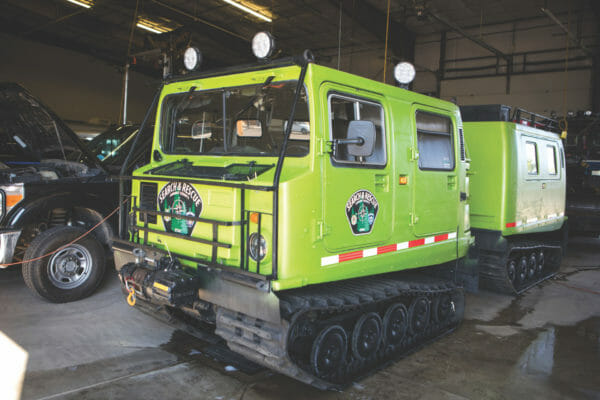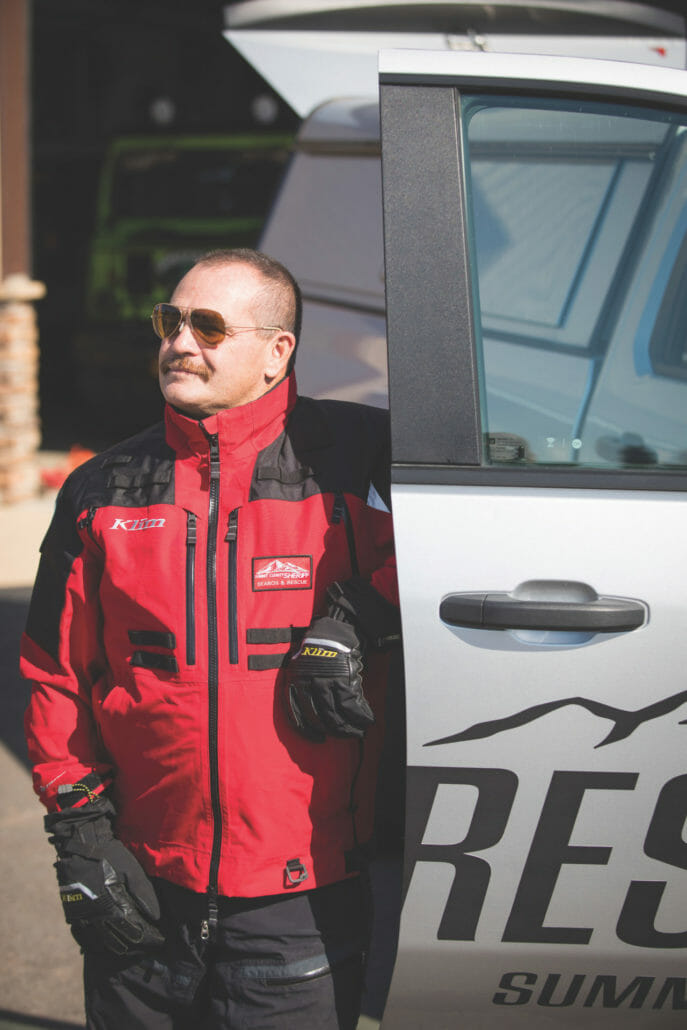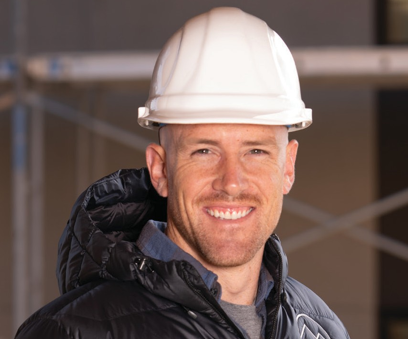
Summit County Search and Rescue is on a mission to save lives
Volunteer-run search and rescue team puts others first
Winter/Spring 21-22
Written By: Ashley Brown | Images: Gillian Hunter
For nearly 50 years, Summit County Search and Rescue (SCSAR) has served the community by fulfilling its mission to save lives.
The team operates under the Summit County Sheriff’s Office and is on call 24 hours a day, 365 days a year for rescues that can last anywhere from a couple hours to multiple days.
The volunteer-run organization relies on people like Team Commander Kory Vernon, who donate their time and skills to keeping people safe. Kory and his fellow team members must attend a monthly volunteer training and respond to at least 50 percent of calls. But Kory, who has been a SCSAR volunteer for nearly 20 years, also has additional duties.
“As team commander, I am responsible for maintaining a volunteer group of civilians to work directly with the Summit County Sheriff’s Office,” he explains. “I oversee personnel to make sure they are trained, managed, and kept safe during operations.”
With upwards of 50 volunteers, the group is a model of teamwork and skill diversity. “It is about working together as a team. We all have to put aside our differences, whether they be mental or physical, and just accomplish the mission at hand,” Kory says. “Everyone brings a skill or specialty to the table, and we use it to get the task done.”
While each team member offers something different, they all share a common goal: to keep the community safe and help save people’s lives.
“When you actually are there, and you get to see a loved one or somebody that has been missing or hurt and witness the reaction of the family or friend when their loved ones are brought down safe … That is the reward. That is why everyone does it,” he says. “Until you see it and experience it, you will never understand why people would volunteer for such a demanding job and not get paid for it.”
Over the past five years, SCSAR has seen a drastic increase in the number of people recreating — and the result is more people who need rescuing and assistance. A call to SCSAR is not something you should take lightly, Kory explains. “When we get that call, we have to deploy our teams, and we are putting our people at risk trying to go help someone.”
Unfortunately, many of the SCSAR calls come from people who are not adequately prepared. Kory confirms that, “A lot of people are out recreating nowadays who are not equipped correctly, and they don’t have the experience or the physical level to be out there.”
To keep yourself and the SCSAR team safe, Kory asks people to make informed decisions when recreating. His advice is to ask yourself, “Am I going to put someone else in danger by going out and doing this?” If the answer is yes, stay home and rethink your plans.


